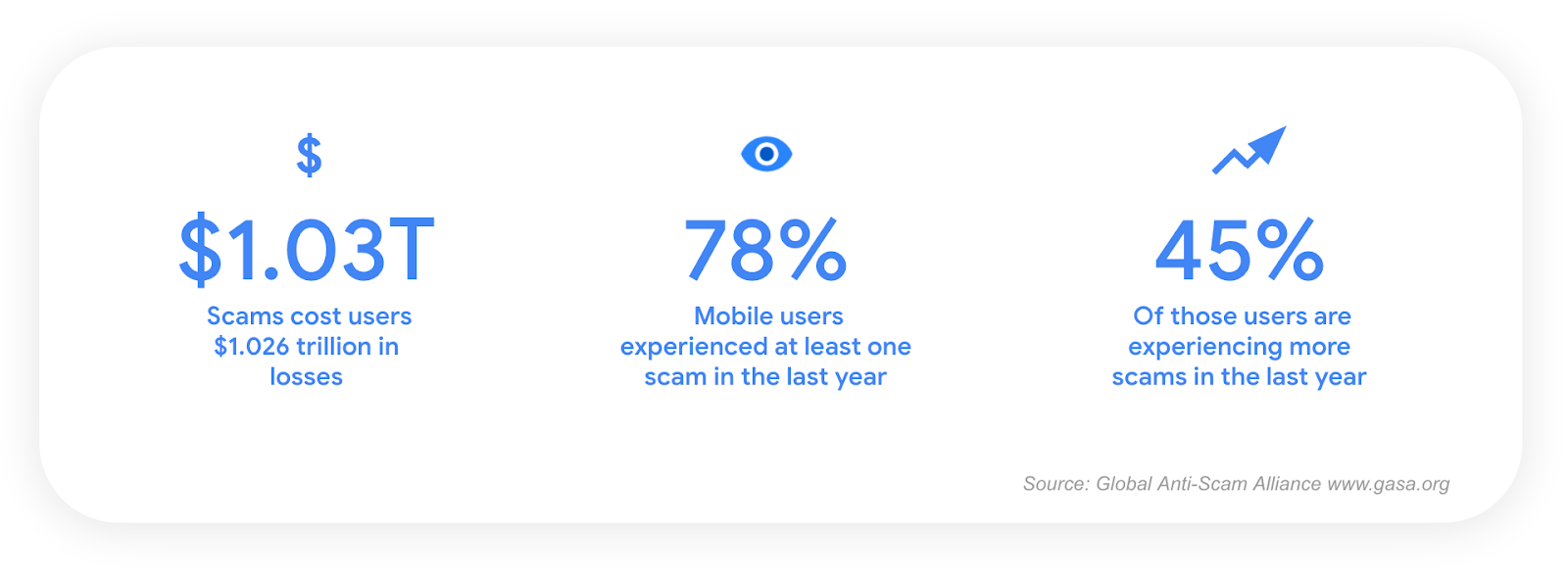[ad_1]
Continuing its strategic partnership with the Cyber Security Agency of Singapore (CSA), Google is set to launch the first pilot of this initiative in Singapore in the coming weeks. The upgraded fraud protection will analyze and automatically prevent the installation of apps that might exploit sensitive runtime permissions, commonly abused for financial fraud. This action will be taken when users try to install the app from sources outside the Google Play Store, such as web browsers, messaging apps, or file managers.
This enhancement will examine the permissions declared by the app in real time, focusing on four specific runtime permission requests: RECEIVE_SMS, READ_SMS, BIND_Notifications, and Accessibility. Fraudsters commonly exploit these permissions to intercept one-time passwords via SMS or notifications, as well as to monitor screen content.

Screenshots showing the feature in action (Image Credit–Google)
During the upcoming pilot, if a user tries to install an application from an internet-sideloading source and the app declares any of these four permissions, Play Protect will automatically block the installation and provide an explanation.
This upgraded fraud protection feature has been tested by the Singapore government and will be rolled out to Android devices with Google Play services, as said earlier, exclusively in Singapore. However, once the pilot program ends, users worldwide should anticipate the feature’s rollout, although Google has not provided a specific timeline.
The 2023 Global State of Scams report by the Global Anti-Scam Alliance revealed that 78 percent of surveyed mobile users experienced at least one scam in the past year. Among those surveyed, 45 percent reported experiencing more scams in the last 12 months.

The Global Scam Report also highlighted that scams were frequently initiated by sending scam links through various messaging platforms. The goal? Make users install malicious apps. Additionally, these scams often involved phone calls pretending to be from legitimate entities. If you’re interested in learning more about how to recognize and fight scams, click here.
[ad_2]
Source link
